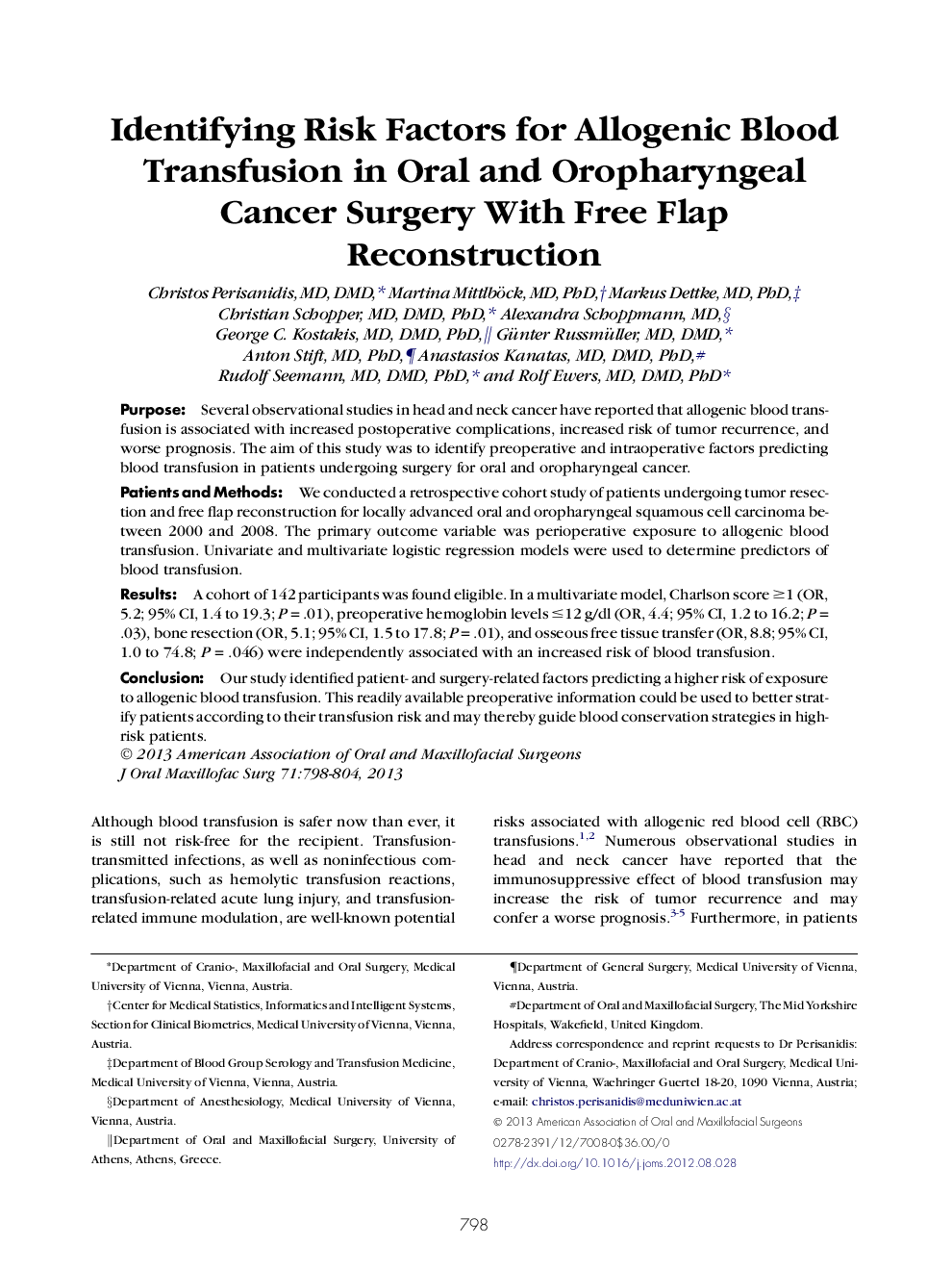| Article ID | Journal | Published Year | Pages | File Type |
|---|---|---|---|---|
| 3156585 | Journal of Oral and Maxillofacial Surgery | 2013 | 7 Pages |
PurposeSeveral observational studies in head and neck cancer have reported that allogenic blood transfusion is associated with increased postoperative complications, increased risk of tumor recurrence, and worse prognosis. The aim of this study was to identify preoperative and intraoperative factors predicting blood transfusion in patients undergoing surgery for oral and oropharyngeal cancer.Patients and MethodsWe conducted a retrospective cohort study of patients undergoing tumor resection and free flap reconstruction for locally advanced oral and oropharyngeal squamous cell carcinoma between 2000 and 2008. The primary outcome variable was perioperative exposure to allogenic blood transfusion. Univariate and multivariate logistic regression models were used to determine predictors of blood transfusion.ResultsA cohort of 142 participants was found eligible. In a multivariate model, Charlson score ≥1 (OR, 5.2; 95% CI, 1.4 to 19.3; P = .01), preoperative hemoglobin levels ≤12 g/dl (OR, 4.4; 95% CI, 1.2 to 16.2; P = .03), bone resection (OR, 5.1; 95% CI, 1.5 to 17.8; P = .01), and osseous free tissue transfer (OR, 8.8; 95% CI, 1.0 to 74.8; P = .046) were independently associated with an increased risk of blood transfusion.ConclusionOur study identified patient- and surgery-related factors predicting a higher risk of exposure to allogenic blood transfusion. This readily available preoperative information could be used to better stratify patients according to their transfusion risk and may thereby guide blood conservation strategies in high-risk patients.
